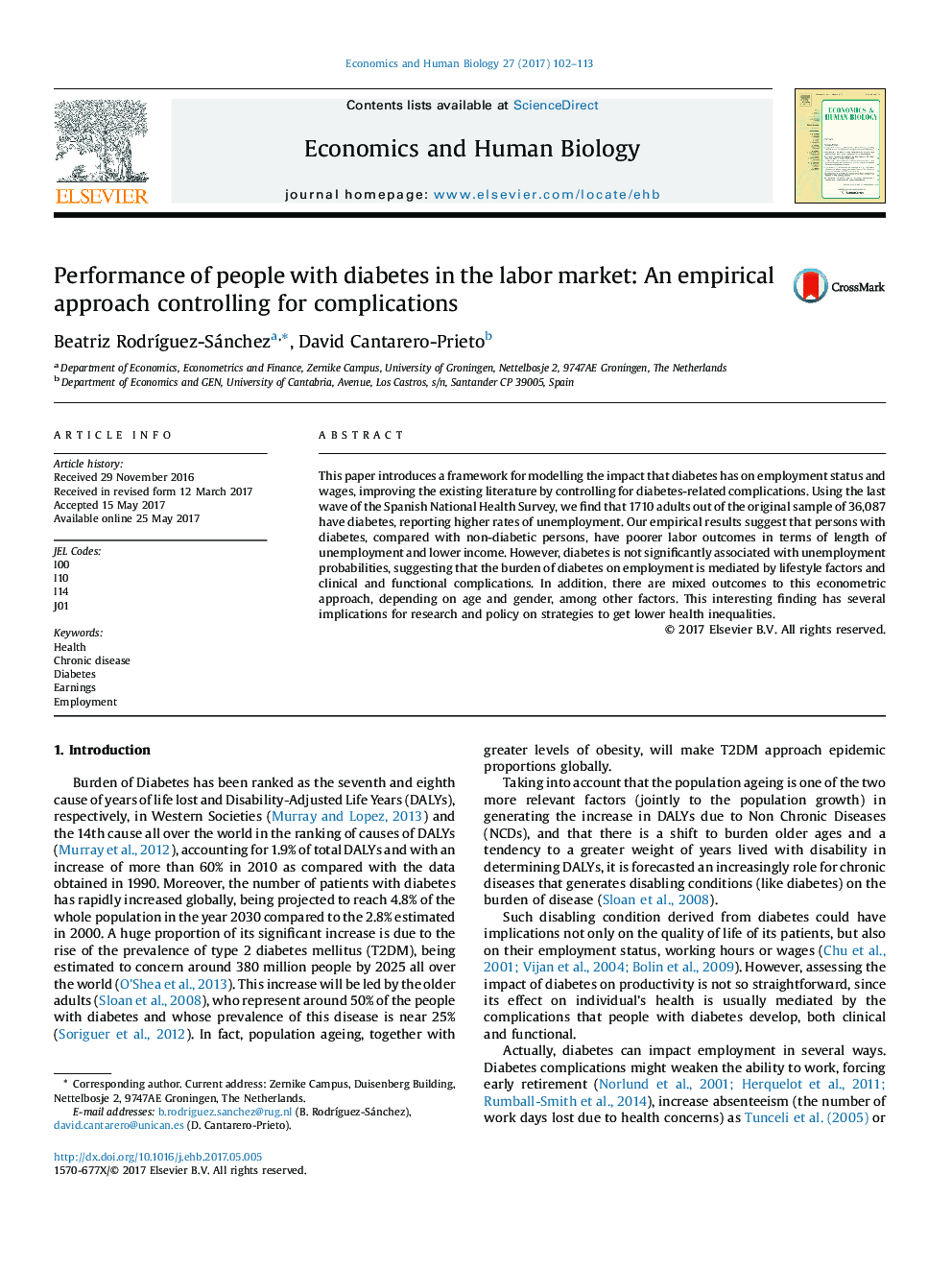| Article ID | Journal | Published Year | Pages | File Type |
|---|---|---|---|---|
| 5056769 | Economics & Human Biology | 2017 | 12 Pages |
â¢We improve the existing literature by controlling for diabetes-related complications.â¢Diabetics have poorer outcomes in terms of unemployment status and income.â¢There are mixed outcomes, depending on age and gender.â¢The burden of diabetes is mediated by clinical and functional complications.â¢Our findings have important implications for research and policy to reduce health inequalities.
This paper introduces a framework for modelling the impact that diabetes has on employment status and wages, improving the existing literature by controlling for diabetes-related complications. Using the last wave of the Spanish National Health Survey, we find that 1710 adults out of the original sample of 36,087 have diabetes, reporting higher rates of unemployment. Our empirical results suggest that persons with diabetes, compared with non-diabetic persons, have poorer labor outcomes in terms of length of unemployment and lower income. However, diabetes is not significantly associated with unemployment probabilities, suggesting that the burden of diabetes on employment is mediated by lifestyle factors and clinical and functional complications. In addition, there are mixed outcomes to this econometric approach, depending on age and gender, among other factors. This interesting finding has several implications for research and policy on strategies to get lower health inequalities.
